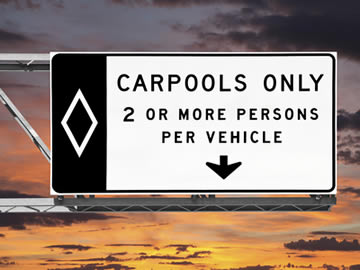Using Uber? Consider This before Jumping in That Car
 Whether living in a large city or a small suburb, citizens are always in need of transportation. While many individuals have their own vehicles to get around, plenty of others depend upon public transportation options such as buses, trains, and taxis. Some companies, however, have taken the idea of a taxi to the next level and recruited ordinary citizens to use their own cars to offer rides to those in need. This may sound like a great idea to some; however there are quite a few problems that come with stepping into a personally-owned vehicle that could be involved in an auto accident at any time. Before choosing to work with the companies recruiting regular people for public transportation, it would be helpful to think twice and consider these facts.
Whether living in a large city or a small suburb, citizens are always in need of transportation. While many individuals have their own vehicles to get around, plenty of others depend upon public transportation options such as buses, trains, and taxis. Some companies, however, have taken the idea of a taxi to the next level and recruited ordinary citizens to use their own cars to offer rides to those in need. This may sound like a great idea to some; however there are quite a few problems that come with stepping into a personally-owned vehicle that could be involved in an auto accident at any time. Before choosing to work with the companies recruiting regular people for public transportation, it would be helpful to think twice and consider these facts.
How It Works
Companies such as Uber, Lyft, and Sidecar are in the business of ride-sharing. Ride-sharing is traditionally known as an alternative to driving to work by oneself or taking transportation with groups of other people. While ride-sharing is most often accomplished through a simple carpool, it can also be done by vanpooling. Vanpools are often set up by large employers or run by city or county governments.
Recently, however, online-based ride-sharing services have organized fleets of drivers to cater to individual passengers with no company or municipality affiliation needed. Those who offer ride-sharing services stand the chance of making considerable amounts of income over time, however they may be putting themselves, and their passengers, in danger. The biggest benefit of these new ride-sharing services is cost savings. They are generally cheaper than a taxi. This is, of course, very helpful in today’s economy, however participating with ride-sharing companies can have plenty of repercussions.
Why Ride-Share Users Should Think Twice
When a car accident happens, many people have their insurance company as their safety net. Standard insurance policies will protect a driver if they get into an accident with or without injury. Protection includes repair of any damage to the car as well as coverage for any medical assistance the driver may need. With the reassurance of a trustworthy insurance company there to help them out of a financial jam if the worst should happen, there are often little to no worries when one gets behind the wheel. Unfortunately, there is no guarantee that one’s insurance company will be able to provide coverage for passengers who are injured in a vehicle used for ride-sharing purposes. If the vehicle is not rated for commercial use like taxis or other public transport vehicles, any accidents that occur with a passenger using the ride-sharing service could cause serious financial problems for everyone involved.
What Can Be Done
Though ride-sharing has been immensely helpful in crowded cities like Los Angeles, San Francisco, and even New York, there are certainly some bugs to work out. When people opt to use taxis or public transportation they are unwittingly protecting themselves from serious financial pitfalls and problems. Similarly, those who decide to offer their vehicles for ride-sharing purposes should be aware of the importance of procuring proper insurance coverage before offering their services and their vehicles to companies like Lyft, Sidecar and Uber. Luckily, the more awareness that is raised about insurance coverage for ride-share passengers, the more likely this business will become safer for both riders and drivers. Buying coverage for commercially-used vehicles could be the most important policy purchased by business owners. When commercial coverage is purchased, businesses can rest assured that everything from their office building to their inventory (in this case, various vehicles) is completely protected.
The Bottom Line
People need to understand that when they decide to participate in ride-sharing services rather than public transportation or their own vehicles, they may be at risk. This can be easily fixed, however if ride-sharing companies simply contact their insurance providers for a quote on commercial vehicle coverage.



